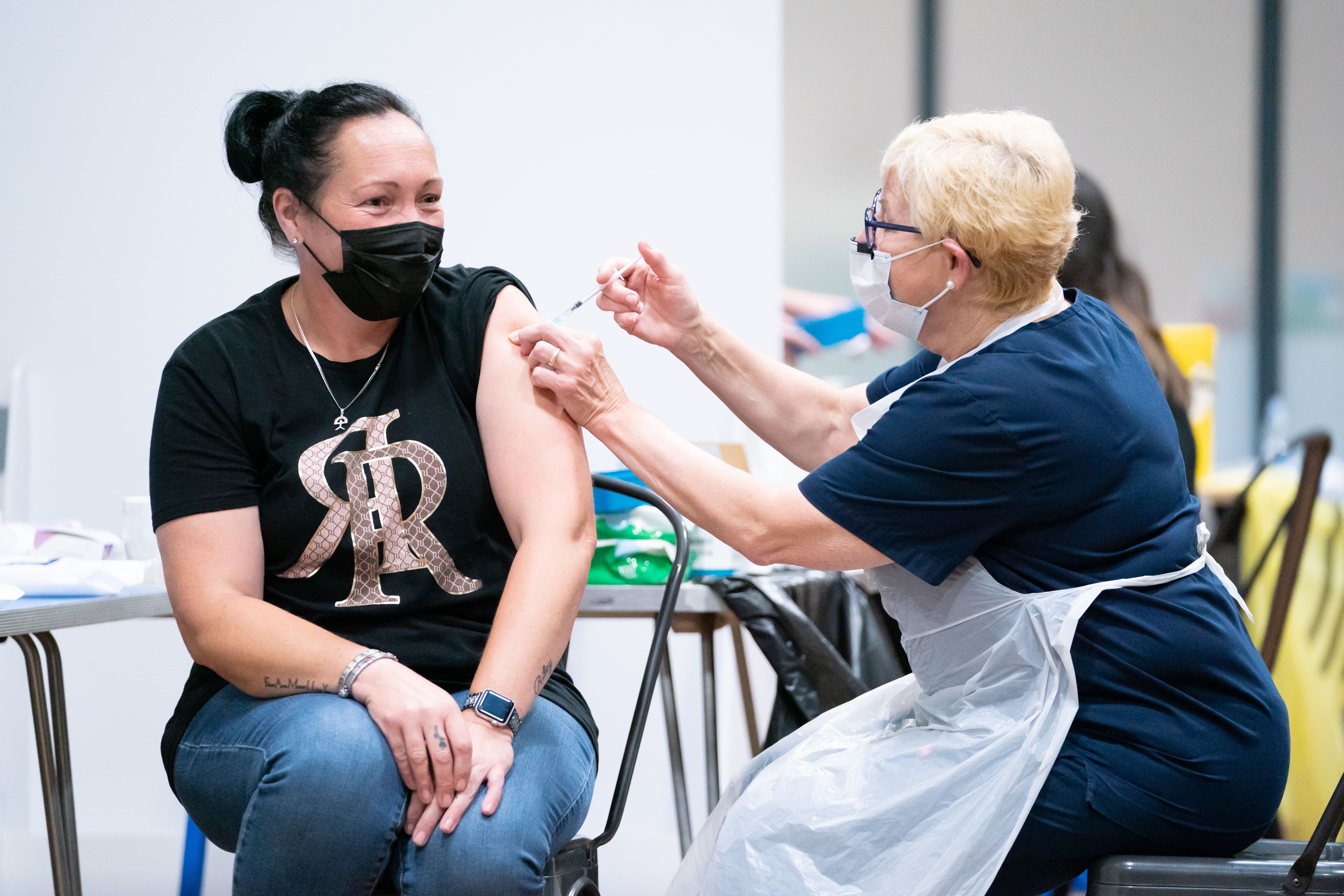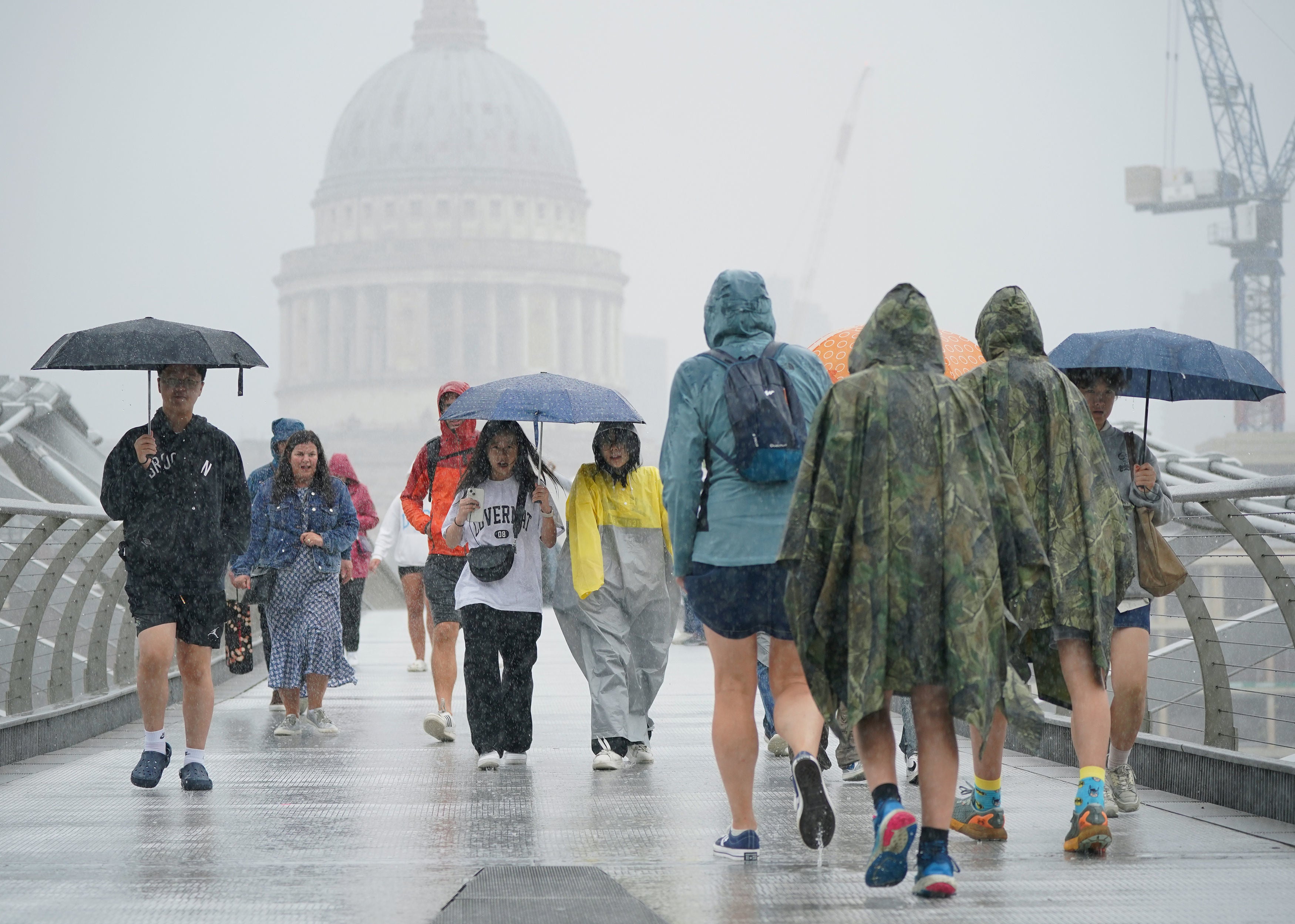Is Barbenheimer really to blame? Covid experts on reasons behind jump in cases
UK has seen increase in Covid cases and a new variant called Eris accounting for one in seven new infections
The UK has seen a recent resurgence of Covid, with a spike in infections and yet another new variant emerging this summer.
Eris, a descendant of the Omicron variant, now accounts for as many as one in seven cases after it was reported for the first time in July.
Experts have been speculating about what is driving the rise, with waning immunity and increased indoor mixing among the potential culprits.

Estimated case numbers jumped by almost 200,000 last month, from 606,656 predicted cases on 4 July to 785,980 on 27 July, according to the Zoe Health Study, which estimates figures for UK Covid infections.
And more recently, 5.4 per cent of 4,396 respiratory specimens reported through the Respiratory DataMart System were identified as Covid-19 up until the week ending on 30 July, according to the UK Health Security Agency (UKHSA). This is compared to 3.7 per cent of 4,403 from the previous report.
Sharing the latest Covid data, Independent Sage member Professor Christina Pagel said there had been a 40 per cent jump in hospital admissions with Covid in England this week, and a 28 per cent jump in the number of patients in hospital primarily due to the disease, although overall the numbers are still relatively low.
It has been suggested that Barbenheimer – the term coined for the double bill of watching box-office smashes Barbieand Oppenheimer back-to-back – may have contributed due to increased indoor mixing in closed spaces. Cinema attendance typically jumps during the summer blockbuster season and the school holidays, both of which got underway in July, and both films have proven popular since they opened on 21 July.
Vaccine expert and dean of the National School of Tropical Medicine in the US Dr Peter Hotez raised the possibility ahead of opening night.
“Not to be a Debbie Downer,” he tweeted, “but anyone worried about a post-Barbie Box Office Covid bump? Or post-Oppie?”

Like the UK, the States has also seen a recent uptick in cases, although it pre-dates the release of the film and is far lower than this time last year.
As of 22 July, there was a 12 per cent rise in hospitalisations with 8,035 cases, according to the Centers for Disease Control and Prevention. Last year, that number was 44,000, NBC News reports.
But experts in the UK have downplayed the significance of a trip to the movies in increased Covid infections.
Professor Lawrence Young, virologist at Warwick University, attributed the rise of UK cases to a number of factors, indoor mixing among them, but there are others.
“The rise in cases in the UK is probably due to waning protective immunity — it’s some time since people received their last booster jabs and/or were previously infected — and to increased mixing in enclosed, poorly ventilated spaces,” he told Mail Online.

While Prof Pagel highlighted an increase in hospital admissions, she said they could not be attributed to the Barbenheimer fad as the admission data is “lagged by a few weeks and also mostly in over-75s who probably aren’t the major demographic going to see those two movies”.
And head of primary care and public health at Imperial College London Professor Azeem Majeed told The Independent it is “unlikely that cinema attendances will have driven any recent increase in cases”.
He also downplayed the concerns about the Eris variant. “I don’t feel that people should be unduly worried by the recent increase in Covid-19 cases. Case numbers will fluctuate and there will be periods when the number of cases in the UK increases,” he added.
Nevertheless, authorities are continuing to monitor the situation as infection rates change.
Dr Mary Ramsay, head of immunisation at the UKHSA, said: “We continue to see a rise in Covid-19 cases in this week’s report.
“We have also seen a small rise in hospital admission rates in most age groups, particularly among the elderly.
“Overall levels of admission still remain extremely low and we are not currently seeing a similar increase in ICU admissions. We will continue to monitor these rates closely.”

What is Eris?
Eris descends from the Omicron variant. It was classified as a variant in the UK on 31 July.
According to the UKHSA, the alarm about EG.5.1 was first raised in monitoring on 3 July 2023 due to increased reports internationally, particularly in Asia.
In the week beginning 10 July 2023, 11.8 per cent of UK sequences had been classified as EG.5.1 (data as of 27 July 2023).
The latest data suggests it now accounts for 14.6 per cent of cases – the second most prevalent in the UK, as reported by Sky News.
The most prevalent variant is Arcturus, which makes up 39.4 per cent of all cases, UKHSA figures show.
The World Health Organisation has added EG.5.1 to the list of variants under monitoring.
Join our commenting forum
Join thought-provoking conversations, follow other Independent readers and see their replies
Comments


Bookmark popover
Removed from bookmarks